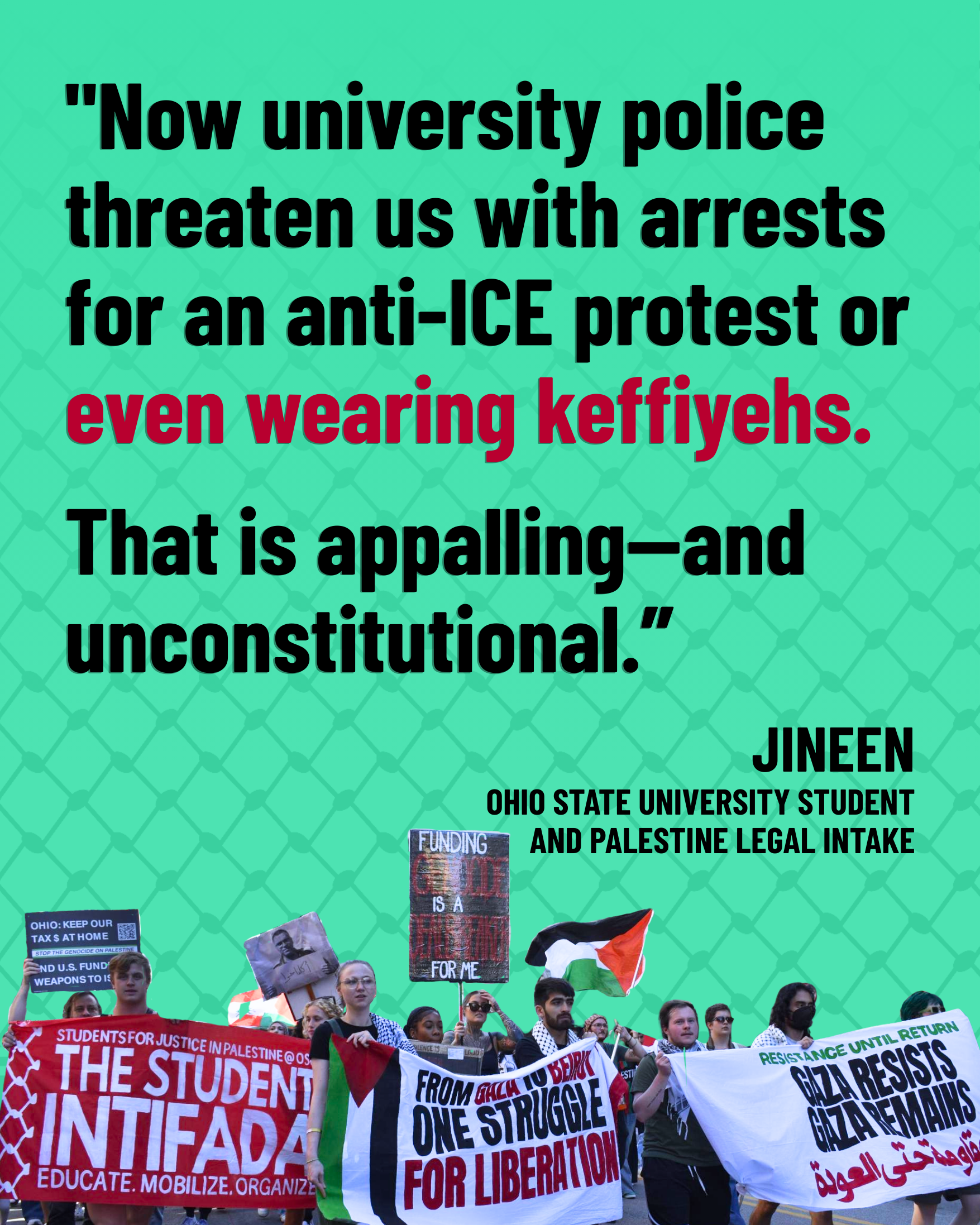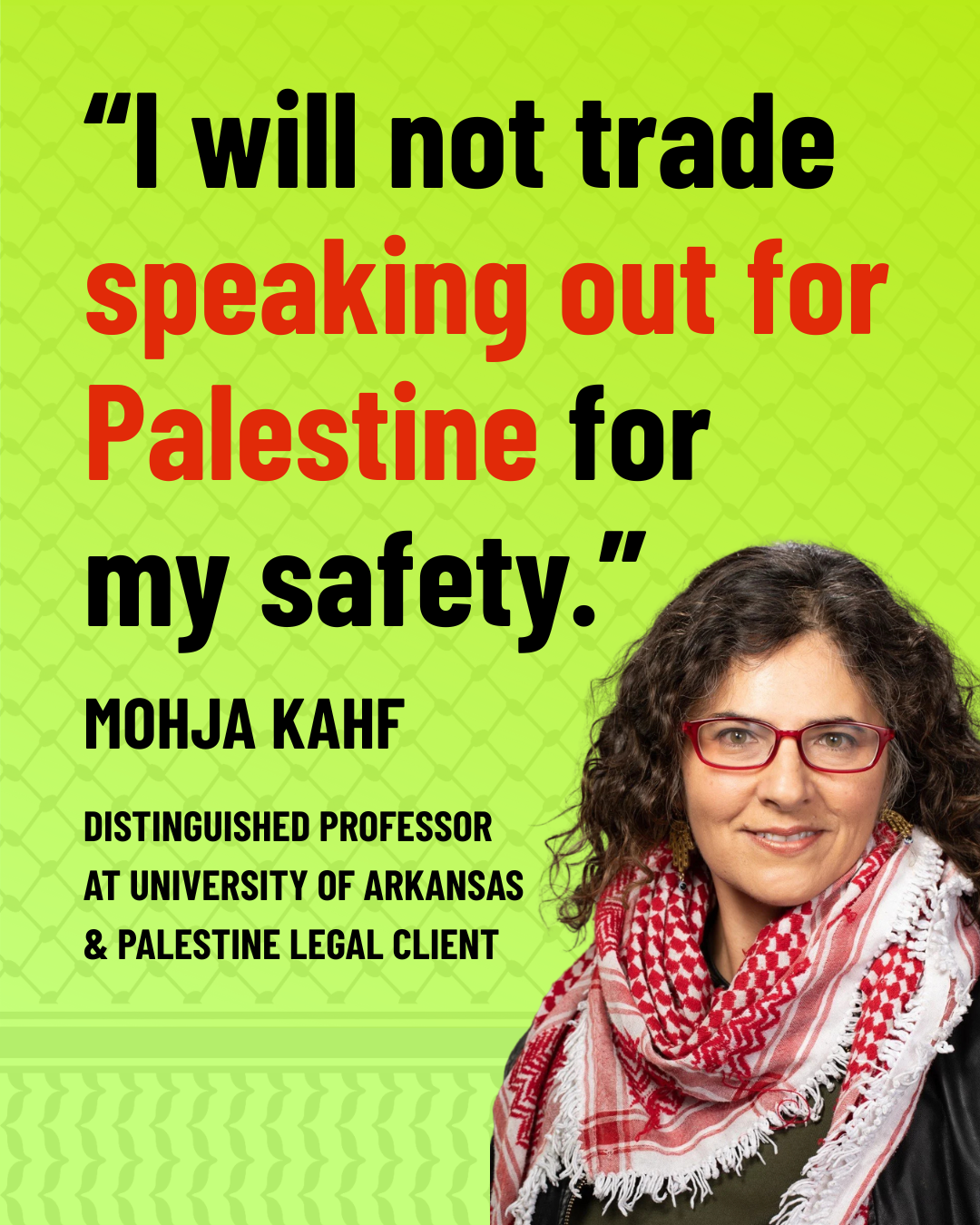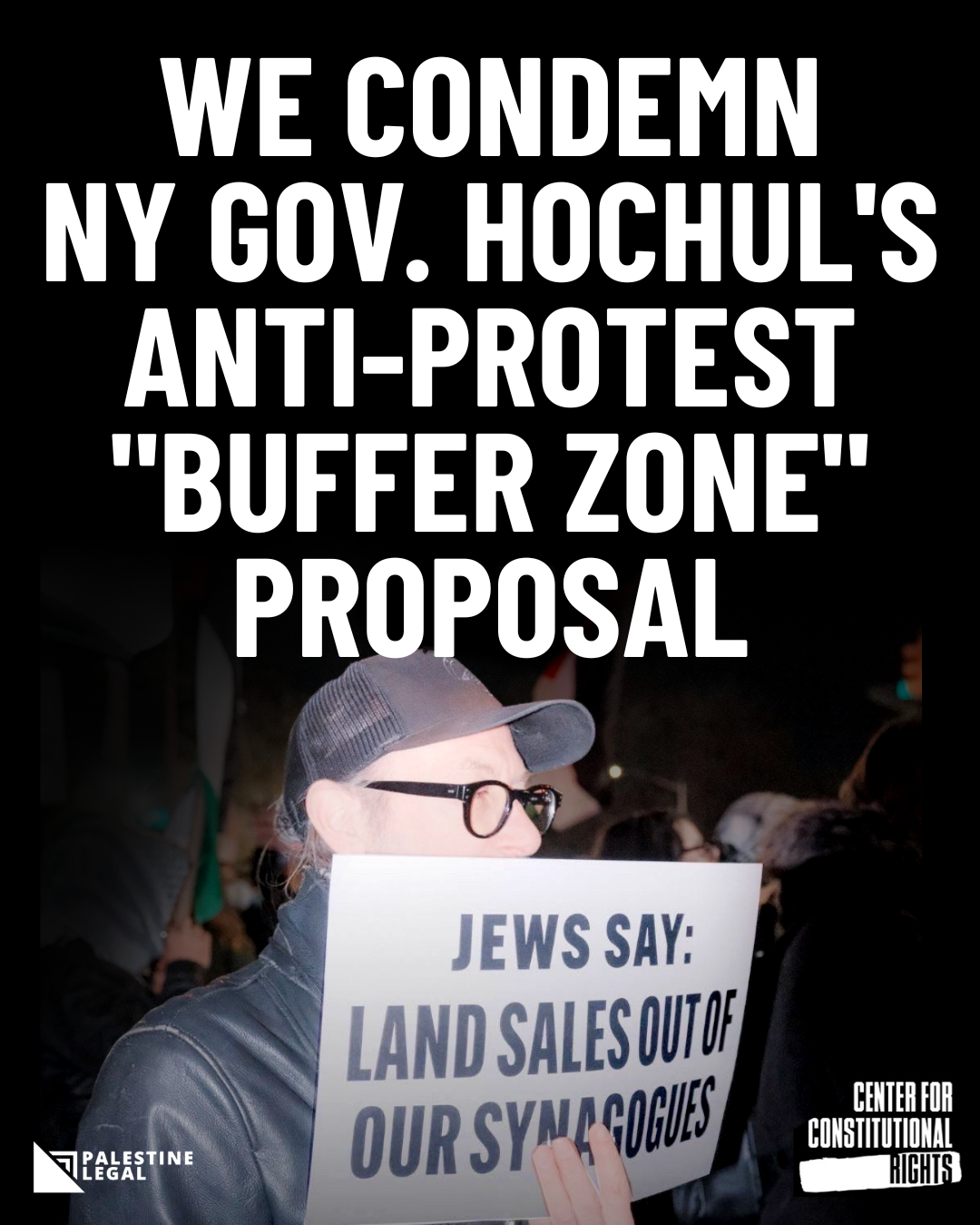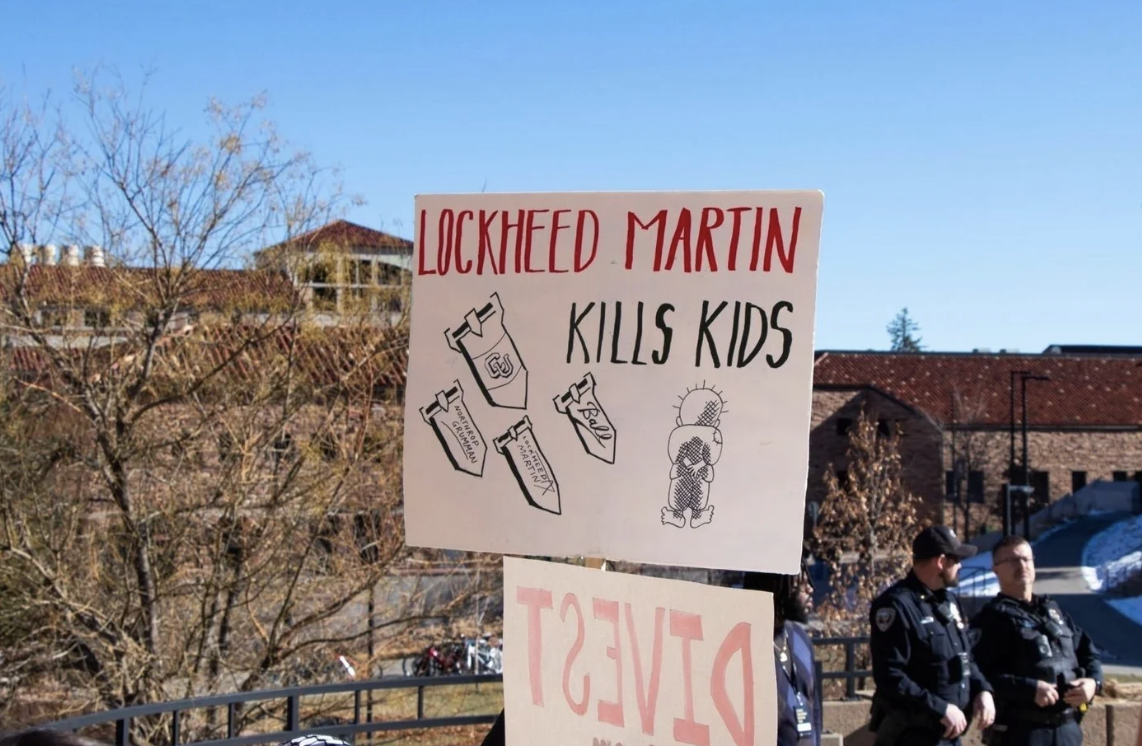Federal court rules Arkansas anti-boycott law violates First Amendment
/Last week the Eighth Circuit Court of Appeals ruled that an Arkansas anti-boycott law violates the First Amendment, reversing the trial court's dismissal of an Arkansas newspaper's challenge to the law. The Arkansas Times was represented by the ACLU in this challenge.
The decision is the first time a federal appeals court has decided on the constitutionality of anti-boycott laws.
“With this decision not a single anti-boycott law has been upheld on the merits,” said senior staff attorney Meera Shah. “Every law that has survived a legal challenge has done so by avoiding a constitutional analysis.”
The Right to Boycott
The Arkansas law required government contractors to pledge not to boycott Israel or reduce their fees by 20 percent. The Arkansas Times lost substantial ad revenue after its publisher refused to sign the no-boycott pledge on the principle that state contractors should not be compelled to speak against boycotts, divestments, and sanctions (BDS) for Palestinian rights, even though the newspaper itself took no position on BDS.
As Palestine Legal, the Center for Constitutional Rights and the Law Office of Matthew Strugar explained to the Eighth Circuit in friend-of-the-court brief in April 2019, “anti-boycott laws have tangible consequences beyond the direct effects of denying contracts and compelling speech. Musicians, teachers, students, professors, and grassroots activists have reported ways that anti-boycott laws have been used to threaten careers, homes, and educations."
Anti-boycott laws have had harsh impacts on everyday people who seek to maintain their livelihood without punishment for their First Amendment-protected support for Palestinian human rights, leading to legal challenges against similar anti-boycott laws.
What right do Israel advocates have to control what anyone in the US says, or to limit an academic conference?
— Palestine Legal (@pal_legal) January 21, 2020
Anti-boycott laws like the one that targeted journalist @AbbyMartin subvert free speech, human rights, and critical discourse.https://t.co/KZni4IkrBI
Filmmaker Abby Martin filed a First Amendment lawsuit against a Georgia anti-boycott law after a conference where Martin was invited to speak was cancelled when she refused to sign a pledge to not boycott Israel.
Software developer Saqib Ali is challenging a Maryland anti-boycott executive order at the Fourth Circuit Court of Appeals because the order would require him to sign an anti-boycott pledge in order to bid on government contracts there.
Other laws have been challenged by people including a speech language pathologist, a reporter, and even two high school debate judges.
In response to multiple lawsuits from individuals harmed by these laws, federal district courts in Arizona, Kansas, and Texas have previously found that these states’ laws—all of which require contractors with the state to sign pledges that they do not boycott Israel—are likely unconstitutional.
All three courts found that boycotts for Palestinian rights are protected by the First Amendment.
But following the rulings, Arizona, Kansas and Texas each amended their laws so that they would no longer apply to the individuals who challenged them, rendering the cases moot and allowing the states to keep their anti-boycott laws on the books.
Eighth Circuit decision
In the Arkansas ruling, the Eighth Circuit reaffirmed that political boycotts are entitled to First Amendment protection under the 1982 case NAACP. v. Claiborne Hardware Co, in which the Supreme Court ruled unequivocally that peaceful boycotts to effect social, political and economic change are a form of constitutionally protected expression.
The Eighth Circuit rejected Arkansas’ argument that its anti-boycott law should be upheld under a different Supreme Court ruling in Rumsfeld v. Forum for Academic & Institutional Rights (FAIR). The Eighth Circuit pointed out that the 2006 ruling in the FAIR case did not concern a boycott at all.
That case, which is often cited by opponents of boycotts for Palestinian rights as justification for repressive anti-boycott laws, held that Congress could withhold federal funding from schools that bar military recruiters from their campus in protest of the military’s discriminatory Don't Ask, Don't Tell policy.
Despite the Supreme Court ruling in FAIR, which allowed the government to exact an economic cost on the schools’ protest, the military ended its Don't Ask, Don't Tell policy just five years later, demonstrating that neither anti-protest laws nor court rulings can stem the tide of social change.
The Eighth Circuit focused on the broader impact of the Arkansas anti-boycott law, finding that because the law makes it unclear whether businesses can "post anti-Israel signs, donate to causes that promote a boycott of Israel, encourage others to boycott Israel, or even publicly criticize the Act" while maintaining their contracts with the state, the law restricted their "ability to participate in speech and other protected, boycott-associated activities" in violation of the First Amendment.
Learn More
Arkansas is one of 30 states with anti-boycott legislation.
In addition to the law that was found unconstitutional, Arkansas has other anti-boycott laws in place that prohibit eight of its public retirement systems and relief funds from taking into account whether a fund, company, or other investment vehicle is in Israel when making investment decisions.
View more about state and federal anti-boycott efforts at our legislation site.
More info, including amicus briefs filed by social justice organizations that engage in boycotts for Palestinian rights, civil rights groups, First Amendment scholars, and others is available here.













